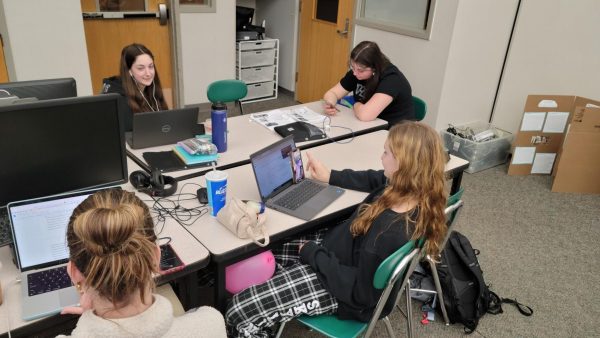Students Find Ways to Manage Stress of Junior Year
October 31, 2022
This year juniors are striving to put their best foot forward to accomplish many goals and to demonstrate their capabilities to colleges. This means students must develop mental fortitude and have a positive attitude to multitask various activities and accomplish many things throughout the year.
While senior year is mostly about college applications and taking fun classes, junior year expects students to challenge themselves as much as possible to load up their résumé for colleges. Juniors at Skyline High school need to balance intensive school work, extracurriculars, passions, and personal life without being inundated with the stresses of work.
“The biggest thing is to have a positive mental attitude towards everything,” junior Aneesh Kumar said. “It’s all about the growth mindset and being able to look at anything and take it on.”
Looking at everything with an optimistic attitude pushes students to achieve formidable tasks without breaking down. Students must also be able to manage their time successfully. Skyline Councilor, Kirsi Varsa, advises students to allocate different times of the day to various activities to be able to be concentrated on essential tasks.
“Write down a list of prioritized activities based on deadlines and time they take to complete,” Varsa said. “Doing good in school is your main job, and everything else should be written down based on urgency and priority.”
Combining a growth mindset and an organized day can help juniors increase their efficiency, productivity, and mental state. Junior year is a leap in intensity compared to sophomore year because of its demanding classes, preparation for standardized tests, and college research making it difficult for students to find time to follow their passions.
Junior Arya Somu suggests students should routinely practice their passions for 10 minutes every day. They can gradually increase the time spent on their interests and integrate it into their schedule to have a seamless day. The key is to be consistent and committed.
“I make sure to make time for playing my instruments or whatever it is every day for just 15 minutes,” Somu said. “You have to just keep it going and try to squeeze in any time that you can to keep in touch or practice your hobbies or passions. Adapt your current schedule to make time.”
There are occasions when unanticipated circumstances arise, and stress clouds the mind. Kumar suggests juniors can alleviate tension by diverting the mind through other less demanding activities to start assignments with a clear head.
“To relax, every day from school I have something to eat, then I take a nap,” Kumar said. “This resets your mind and thoughts, so anything bad that happened at school is out of your brain so you can focus on your assignments.”
Looking ahead juniors have to be prepared for what they are doing after high school. This is a daunting topic because of the countless uncertainties the future holds and how there is insufficient time to prepare. Varsa advises students to discuss plans for the future with others to gain reassurance and clarity about what happens next and the right steps to take.
“Do some soul-searching and spend time figuring out who you are as a person,” Varsa said. “Have more conversations with people whose interests align with yours so you can feel confident about the things you can do to influence your future because it lies in your hands.”
Juniors are expected to transition into a mature stage of life and have to learn to cultivate a strong mentality, to change the outcome of their future. The arduous work put in today can produce better habits for tomorrow so that there is better fortune in the years to follow.












Aneesh • Nov 4, 2022 at 11:12 am
I liked looking at how other people deal with stress and anxiety. Also, this article was well-written.